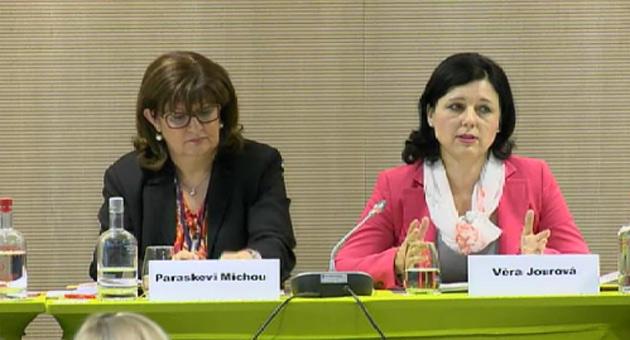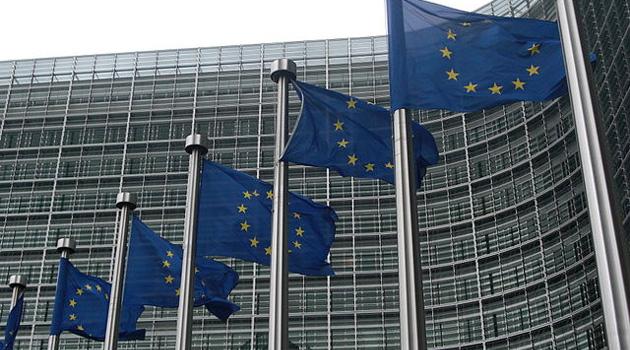The ninth session of the European Platform for Roma Inclusion took place in Brussels earlier this week, attended by Věra Jourová, European Commissioner for Justice, Consumers and Gender Equality, as well as by a delegation from the Czech Republic led by Minister for Human Rights, Equal Opportunities and Legislation Jiří Dientsbier. Through this initiative, the European Commission facilitates a broader dialogue between the Member States, nonprofit organizations and Romani representatives with respect to inclusion and integration policies.
The session was focused on establishing a starting point for the targeting of European Union policy in the area of Romani integration and represented a political pledge by the Member States to implement policies at national level aiming to improve the situation of Romani people. Dienstbier spoke on a panel in the morning about the discrimination of Romani people, giving a presentation about legislation and tools that are still in the process of preparation, but that both he and the Czech Government consider will be the most essential to Romani integration.
"The basic premise of combating antigypsyism is educating the public and beginning intercultural dialogue from early childhood. It is absolutely necessary that education in and of itself include components that focus on coexistence and understanding, ideally starting in nursery school. In this respect I see a big step in the right direction as being the facilitation of Romani children’s attendance in preschool education, their inclusion. The last year of preschool education should be compulsory for all children as of 2017 in the Czech Republic. There is a need, however, for a conscious, sensitive approach on the part of educators, i.e., they themselves need to be educated," Dienstbier said in his speech.
"In order to ensure equal access by Romani children to education, the Schools Act is in the process of being amended. The amendments have been approved by the Government and the Chamber of Deputies. Now they are being discussed in the Senate, which should vote by 26 March 2015. The Czech Government aims to support inclusive education and equal access to education for all children such that it will take place in mainstream education. Should a child need special support, that child should remain in mainstream education with the aid of support measures. To establish equal conditions, however, other changes are necessary. The Government is preparing a law on social housing and a law on social enterprises that should facilitate the greater involvement of groups at risk of discrimination on the labor market and ensure them dignified housing. The recently adopted Romani Inclusion Strategy also requires Labor Offices to know how to work with groups at risk of racial discrimination and with the members of ethnic minorities," Dienstbier said.
The session began on Monday 16 March. The opening day featured two workshops, the first of which was focused on combating antigypsyism, discrimination and prejudice, and the second of which focused on collaboration between stakeholders in the integration process.
On Tuesday 17 March two morning panels continued the topics of the first day’s panels, followed by a plenary discussion with EU Commissioner Věra Jourová and high representatives of the Member States. That discussion was attended by ministers from the Czech Republic, Hungary, Lithuania, Luxembourg and Sweden, by MEPs, and by leading figures contributing to Romani integration.
The Czech Republic was represented by a four-member delegation at the event; in addition to Minister Dienstbier, those attending were Martin Martínek, head of the Secretariat for the Czech Government Council on National Minorities, Jarmila Balážová, a former journalist now working as the minister’s press spokesperson, and Jan Kudry, Mayor of Svatý Jan pod Skalou and a member of the Czech Government Inter-ministerial Commission on Roma Community Affairs. Representatives of nonprofit organizations from the Czech Republic also attended, such as Michal Miko from the Slovo 21 organization, Ivana Čonková from the Konexe organization and Kumar Vishwanathan from the Life Together (Vzájemné soužití) organization.
VIDEO
Úvod a panelové diskuze na téma diskriminace Romů |
Panelové diskuze: Spolupráce v oblasti integrace Romů |
Diskuze o dalším směřování |
Závěry z jednání o dalším směřování a zakončení |

